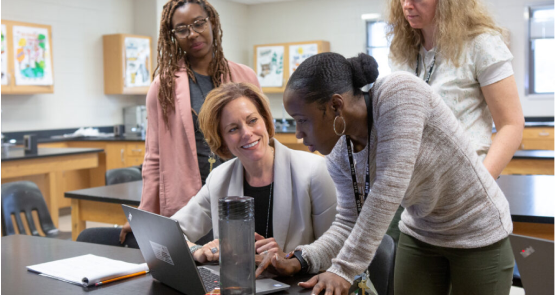We’ve all been there. You’re in a work meeting and someone is taking over the conversation without really knowing what they’re talking about. Or, a family dinner becomes combative when the reigning “foreign policy expert” is mispronouncing the names of other countries. There’s a very common cognitive bias at play in these situations: the Dunning-Kruger effect.
The Dunning-Kruger effect occurs when people believe that they are smarter, more capable, and higher-performing than they really are. In these situations, people overestimate their knowledge and intellectual prowess relative to their peers, or the general population. The phenomenon is named after researchers David Dunning and Justin Kruger, two social psychologists who investigated the effect in several studies.
For example, in one experiment, Dunning and Kruger administered tests on logic, humor, and grammar to groups of participants, and then asked them to estimate their own performance. Those who performed the lowest, in the 12th percentile, estimated that they achieved in the 62nd percentile. In another experiment, the psychologists asked respondents if they were familiar with various common science subjects. They also included terms that were completely fabricated. In one of the experiments, about 90 percent of the participants indicated that they had some knowledge of the fictional terms.
“To a great degree, we fail to recognize the frequency and scope of our ignorance.”
As Dunning himself writes, “To a great degree, we fail to recognize the frequency and scope of our ignorance.” In business and in the workplace, widespread experience with the Dunning-Kruger effect can be considered the logical result of a corporate culture that rewards overconfidence. Researchers find that overconfidence in the workplace is highly contagious. If an employee is rewarded socially or professionally for their risk-taking and hyper competitive behavior, others in the workplace begin to model and replicate that behavior in hopes of their own advancement. It is easy to see how this common workplace culture would result in fewer opportunities for curiosity or admission of any lack of knowledge and instead manifest in meetings and other group activities as the Dunning-Kruger effect.
“In voters, lack of expertise would be lamentable but perhaps not so worrisome if people had some sense of how imperfect their civic knowledge is,” Dunning wrote during Trump’s 2016 campaign for president. “If they did, they could repair it. But the Dunning-Kruger Effect suggests something different. It suggests that some voters, especially those facing significant distress in their life, do not know enough to hold [Trump] accountable.”
Why are we so often unaware of our own inabilities? Dunning and Kruger point to a “dual burden” that exacerbates the Dunning-Kruger effect. Essentially, their research finds that incompetence begets more incompetence. People who experience the Dunning-Kruger effect, by nature of their own incompetence, lack the mental ability required to recognize their incompetence. Instead, they will overestimate their own skill and knowledge, and fail to recognize their own mistakes. The Dunning-Kruger effect also changes how incompetent people view their peers, because they often underestimate and undervalue the skills and knowledge of others.
“People who experience the Dunning-Kruger effect, by nature of their own incompetence, lack the mental ability required to recognize their incompetence.”
The Dunning-Kruger effect doesn’t have to rule our thinking. There are ways to overcome this impulse. For example, Dunning and Kruger’s research suggests that as we get more familiar with a topic or area of study, our false confidence decreases to appropriate levels.
Acknowledge you don’t know it all: It sounds simple, but especially when speaking or writing about topics you are very passionate about, it’s helpful to remind yourself that while you may feel strongly about it, you might not have enough knowledge to communicate about it with authority. Acceptance is the first step.
It’s important to remember that cognitive biases are natural and are often helpful tools that help us quickly navigate our days and make smart decisions. However, when cognitive biases are not balanced with critical thinking, they can lead us down the road of faulty decision-making.



